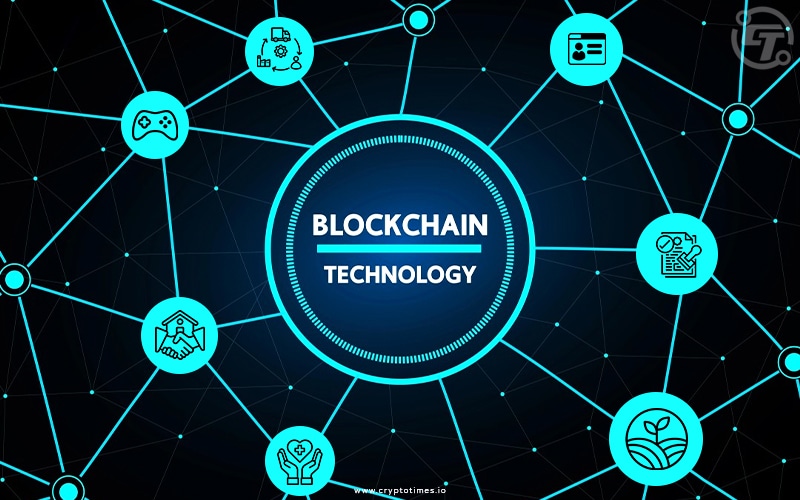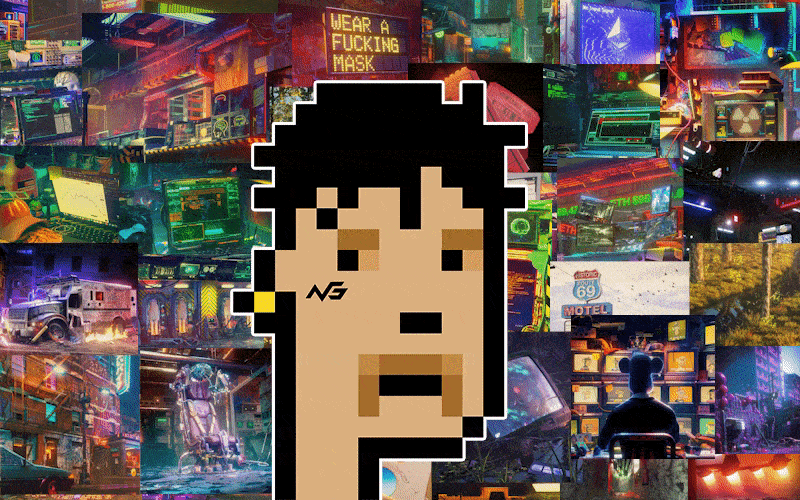In an era of rapid technological advancement, blockchain technology has emerged as a revolutionary concept with fascinating use cases for various industries and sectors. Most people think of blockchain technology as a platform for cryptocurrencies. However, in the last few years, real-world use cases of blockchain and its potential goes beyond cryptocurrencies.
This article will discuss the top 9 real-world use cases of blockchain technology. This helps you understand more about the diverse applications of blockchain and the impact it has on industries and individuals alike.
By exploring these use cases, we aim to provide a comprehensive overview of how blockchain technology is reshaping our world, fostering trust, security, and efficiency in ways previously thought unattainable.
As we navigate through these transformative applications, it becomes evident that blockchain is not just a technological advancement; it’s a fundamental shift that has the potential to redefine how we interact, transact, and conduct business in the digital era.
So let’s just be calm and enjoy these articles.
1. Digital IDs – WorldCoin
With the growing number of internet users, digital ID is the next big step to verify human identity and keep on security check. However, issuing digital IDs through blockchain technology brings more transparency and security to data stored on the network.
In the world of blockchain innovation, Worldcoin is a standout. AI entrepreneur Sam Altman leads this project to redefine identity verification and financial access.
A key player in Worldcoin is the Orb, a biometric device shaped like a silver sphere. Designed with input from an Apple designer, it uses iris scanning to create a secure World ID for human verification. Also, it keeps everyone’s identity safe while verifying them.
Worldcoin project prevents identity fraud, showing the project’s focus on fairness and security. Worldcoin is more than technology; it’s about changing the economic system. Sam Altman, along with co-founders Alex Blania and Max Novendstern, aims to make financial services through this project accessible to all.
With their AI, blockchain, and business skills, the Worldcoin team is ready to create a fairer digital world. This project blends technology and social responsibility, shaping a more human-centered digital future.
2. Healthcare – MediLedger
Blockchain technology will play a pivotal role in improving the healthcare system, from maintaining the supply chain to keeping records of patients and their health problems.
The MediLedger Project, a groundbreaking collaboration between Chronicled and The LinkLab has emerged as a pioneering project in revolutionizing the pharmaceutical industry. The project was unveiled on September 21, 2017, with the ambitious aim of addressing the compliance demands of the Drug Supply Chain Security Act (DSCSA) by harnessing the power of blockchain to enhance the tracking and tracing of prescription medicines.
By unlocking the power of blockchain, the project strives to thwart the intrusion of fake medications into the pharmaceutical supply chain. It will also ensure regulatory compliance and safeguard consumer well-being. The central focus of the MediLedger Project is to provide a robust solution that aligns with the DSCSA’s requirements for an “interoperable system” to manage the records of ownership and transfers of prescription drugs across the United States.
Big pharmaceutical companies like Genentech, Pfizer, AmerisourceBergen, and McKesson Corporation are leading the MediLedger Project. They made a prototype system that registers and checks medicines on the blockchain while keeping things private. This shows how blockchain can make medicine safer and stop the supply of fake drugs worldwide.
The result is an interoperable system that instills trust among stakeholders, including manufacturers, wholesale distributors, hospitals, and pharmacies. Blockchain’s unassailable data provenance allows these parties to register, verify, and transfer pharmaceutical products with unparalleled confidence in their authenticity and origin. It sets new benchmarks for regulatory transparency and consumer safety in the biopharmaceutical realm.
3. Supply Chain – IBM
As blockchain has the potential to manage data and information securely and transparently, its application in the supply chain can bring abundant benefits.
One of the biggest tech companies, IBM, has been working on several blockchain projects for supply chain management. One of their solutions is the IBM Blockchain for supply chain, which helps supply chain partners share trusted data through blockchain solutions.
Any industry, from food to drugs, requires an efficient supply chain to maintain constant and quality goods supply. This is particularly important during disruption, as businesses and consumers want brands to guarantee product authenticity.
IBM Blockchain supply chain solutions use distributed ledger technology to provide a shared, single version of the truth, giving permissioned participants greater visibility across all supply chain activities. This can help supply chain leaders use data to handle disruptions and build resiliency for the future.
4. Real Estate: PropertyChain
The immutability of blockchain enables unique token creation directly linked to real-world property, which no one can temper. This will help keep a record of ownership and smart contracts for transactions to prevent fraud.
PropertyChain is a blockchain-powered property management system that enables the availability of a shared ledger of property-related transactions with all related stakeholders. The property details and all the transactions on the property would be stored in the blockchain.
The transactions could include a pledge of property, release of pledge, inheritance mutation, sale, gift, acquisition initiation, alienation, etc. Even while the mutation process is being executed in the land records system, all the stakeholders can see the complete history before making a decision. The prospective buyers will benefit significantly by ascertaining the ownership and rights, liabilities, details of GPA, etc. This will substantially reduce litigations and speed up the disposal of disputes/cases.
PropertyChain also helps people to locate the property of their desire with additional details. It will help them to prevent fraud related to the real estate business.
5. Agricultural: AgriTrace
Agriculture is the backbone of any country as entire human survival depends on it. That is why agricultural modernization is imperative. Implementation of blockchain technology into the Agricultural sector can make some improvements such as quality assurance, food safety, and recall management.
One of the examples of blockchain and agriculture integration is AgriTrace. AgriTrace is a platform for generating and managing green value chains. It is the first solution on the market to address the control and management of the entire agricultural product life cycle, not just the supply chain.
The platform will enable transparent capture, monitoring, and reporting of environmental (and social) impacts in all processes along the value chain.
The AgriTrace platform is based on the latest technology, like cloud processing, blockchain, smart contracts, Internet of Things – and other techniques to adapt several processes and stakeholders in the chain, allowing it to be used for various use cases in different industries. You can find more information about AgriTrace on their website.
6. Documentation and Certification: Soulbound Tokens
Blockchain technology can revolutionize the realm of documentation and certification by providing an immutable and transparent ledger. It ensures that documents and certificates tokenized on the ledger are securely stored and easily verifiable, enhancing authenticity and reducing fraud.
Soulbound tokens (SBTs) are digital identity tokens that represent the traits, features, and achievements that make up a person or entity. SBTs are issued by “Souls,” which represent blockchain accounts or wallets. One cannot transfer SBTs. SBTs prove to be of great assistance in digital verification and documentation. As SBTs are bound to their Souls, they cannot be forged, guaranteeing the document’s authenticity.
Soullbound tokens can be helpful in the process of hiring the most qualified individual for a position. SBTs can represent a candidate’s educational credentials like degree and professional certificates and previous work history as proof of skill to meet the human resource needs of an organization. For example, when people graduate from university, they receive a certificate proving completion of the required courses. The SBT would store the student’s credentials, proving they hold the relevant qualifications and are a member of the university.
In 2022, the layer-2 blockchain solution Polygon partnered with the National University of Mongolia (NUM), allowing students to collect their diploma certificates as Soulbound tokens.
7. Art Monetization – Maecenas
The amalgamation of blockchain technology and artistic soul unlocks a new chapter in monetizing arts. Until now, artists used to approach various auction or art-selling platforms to sell their artwork. However, blockchain now allows artists to tokenize their art, providing authenticity and enabling them to sell directly to art enthusiasts, thereby increasing customer interaction.
Love for artistic and creative stuff has been eternal since ancient times. To prove the definition of the quote– “innovations and technology erase boundaries and bring people closer,” Maecenas harnessed the power of blockchain technology.
Maecenas is the pioneering force at the intersection of art and blockchain technology. It is a revolutionary platform designed to democratize the world of fine art investment. Founded on the principles of transparency, accessibility, and disruption, Maecenas strives to reshape the traditional art market by leveraging the power of blockchain.
Maecenas provides a new platform for individuals, collectors, and investors to participate in art ownership through fractional ownership. It breaks down the barriers historically limiting art investment to a privileged few. Using blockchain’s inherent transparency and security, Maecenas provides a decentralized alternative to conventional auction houses and intermediaries. However, this project is not associated with digital collectibles or Non-fungible tokens.
At the heart of Maecenas’ mission is making art accessible to a broader audience. By enabling investors to purchase shares of high-value artworks, Maecenas paves the way for those with varying financial capacities to engage with the art world on their terms. This innovative approach benefits investors, galleries, collectors, and the broader art community, as it facilitates increased liquidity, lower costs, and enhanced transparency.
8. Cross-Border Transactions – Stellar Network
The sole purpose of blockchain is to improve the financial landscape by integrating the value of immutability and transparency. Such value makes cross-border transactions trustable.
The dream of universal currency is incomplete without the unleashing power of blockchain technology. One of the networks that can fulfill this dream is Stellar Network. Stellar is a global public blockchain built for interoperability, financial access, and inclusion. Stellar can be used for cross-border payments and replaces the process of international wire and currency conversion in a single pathway, making transactions fast and efficient.
A Stellar-based solution for cross-border payments can overcome the money and time issues associated with traditional B2B payments. Additionally, it is possible to implement cross-border payments using the Stellar blockchain in Java. Simply put, Stellar offers a powerful solution for cross-border payments that is fast, efficient, and accessible.
9. Gaming Sector – The Sandbox
Intellectuals worldwide envisage a boom in online gamers due to fascinating developments like the metaverse. Blockchain technology will help such projects improve the experience of in-game assets and resources. It will also foster a vibrant player-driven economy.
If you carry mad love for games in your heart, this use case is especially for you. Regardless of whether this is not the IRL blockchain use case, it still influences the modern world. The Sandbox, a notorious metaverse project, leverages the power of blockchain technology to create a virtual gaming experience. It allows gamers to collect in-game resources that are tradable and participate in the game to earn money through the play-to-earn model.
The Sandbox has its own ecosystem with SAND tokens that allow players to build their own projects and spill their creativity out, similar to most popular Minecraft games.
Also Read: Top 10 GameFi Projects for Making Money
Conclusion:
These genius blockchain projects exist in our world, making thousands of human lives better in various sectors. Besides the projects mentioned above, blockchain technology is also examined by governments and private institutions to build innovations upon it. Furthermore, an amalgamation of booming technology like AI with blockchain also has a promising future that will benefit our life in numerous ways.







